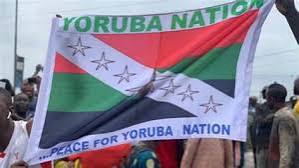I love to see and approach poetry as a mystical adventure, a metaphysical inquisition that leaves me asking questions, not to ultimately arrive at some particular answers, but just to contemplate. Looking at the poetic world via this lens, there exist poets who are simple seekers, initiates in the mystical journey of Muse. There are those who are dervishes, whirling and shaking to the madness breaking their bodies, their senses sizzling into the nothingness shredding the faculty of their thoughts. And there are those who have reached the upper station (of Muse), those whose bodies have annihilated into their poetic selves, reaching a oneness in the manyness of their thoughts. Today, in this part of the country, whichever class you might find yourself, chances are that you were influenced, in one way or the other, by Poetic Wednesdays (PW).
You see, I am not a PWer. I have never identified as such. In fact, I have never written a poem as a response to the challenge they used to throw on Facebook every Wednesday then. Not a single poem. In short, I do not exist as a poet if my existence is to be measured by my presence and engagement in PW. Surprisingly (or not), however, I am a definitive example of PW’s, in Sa’id Saad’s voice, ‘poetifying’ power. The experience below might help drive this point home.
In 2020 Libretto publishers published my chapbook, Silence is the Beginning of Hell after its emergence among the shortlisted manuscripts for the 2020 Libretto Chapbook Poetry Prize. Six (or thereabout) people blurbed the chapbook: Chisom Okafor, Umar Sidi (author of the Poet of Dust), Naseeba Babale (the current secretary of PW), Adamu Usman Garko (author of When Day Breaks) and Rasaq Malik (author of The Other Names of Grief). Today when I look at the chapbook, its genesis up to its publication, I see a cord; a cord that stretched as far back as to many Poetic Wednesdays, ultimately stopping on—yes, you guessed right—Maryam Gatawa.
For the sake of the ‘Indomie generation’ of poetry, let me repeat what is known here: there was a time when Wednesdays were special days, especially, here in the North. Then, every Wednesday, there would be a challenge for writers or, to put it more precisely, poets to write on particular, usually given themes. Those days, people like me would be eager to log onto Facebook at night to read the revelations of the ‘prophets of muses’, to borrow Plato’s line. It was out of these challenges that I would come across Maryam Gatawa, a person to whom my poetry journey would forever be grateful to. It was my acquaintance with Gatawa that became the seed of my subsequent acquaintance with Umar Sidi, Mujahid Amin Lilo, Naseeba Babale, Adamu Usman Garko, among others. See the cord?
There are thousands, hundreds of thousands of me.
What PW did were, basically, two things to create these onion-like layers of literary influence. First, it established a hub, a center, a nest, a home where all the creative vagabonds in, especially, the Northern part of Nigeria can meet, belong and, of course, exchange their muses. In this hub, three classes of PWers emerged: (a) those who write, post and also engage the works of others, (b) those who do not write, but do engage the works of those who write and (c) the silent observers, the readers, the no-comment-no-like gang. (And this was the class I was comfortably sitting in). All these classes were deeply influenced in such a way that none could have been the same without PW. None!
Second, it created a loud promotion of poetry, especially, in the North; a factor which created ripple and multiplier effects that the most part of our poetry in this part of the country will forever be grateful to. Poetry was demystified in such a way that young Northerners saw that they could do it, too. That the craft is not only for some selected demigods and other literary prophets living in Ibn Shuhayd’s mystical world. This, after its successful creation of hundreds of Gatawas and Babales, also pushed others to, at least, appreciate poetry and poets, something which was not so common pre-PW. Today, if you’re a young poet in Northern Nigeria, It would be safe an assertion to say that you were either influenced (directly) by PW or you are influenced by someone influenced by PW. Yes, that is how strong the domino effect is.
In the end, looking back at the trail of the poetic legacies PW has managed to leave behind, one can say that it has succeeded beyond the mystical and metaphysical aspect that I love to see poetry through. Its influence transcends that realm and exists in the realm of the ‘material’ world. For, as Dylan Thomas opined, a ‘good poem is a contribution to reality. The world is never the same once a good poem has been added to it.’ Question here is, how many ‘good’ poems were added to this part of the world through the strides of PW? I would leave you to count. What I know, however, is that the pre- and post-PW North, is a good specimen in the concept of ‘leapfrogging’.
Happy six impactful years, PW.
Abdulbaki Ahmad[email protected]




